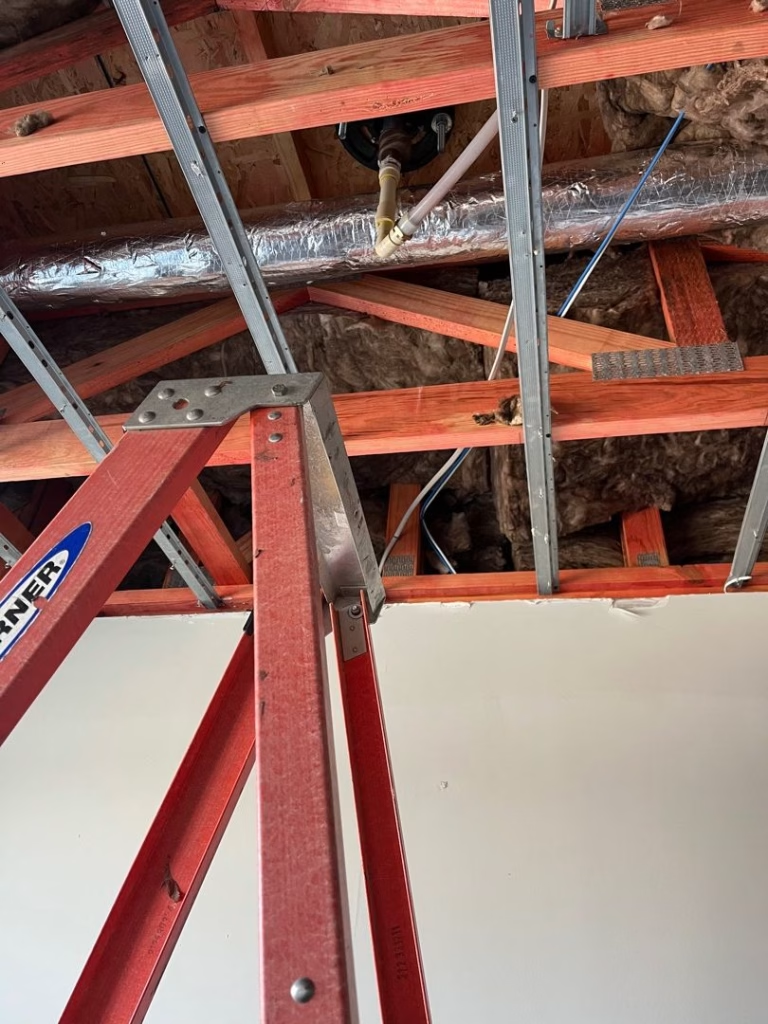When the outdoor temperature drops below freezing your property can be at risk of frozen pipes and the troubles that follow. Taking proactive measures early on can help prevent pipes from freezing and bursting, saving you a lot of money and headache. Here are a few steps you can take to prevent frozen pipes and damage to your home.
Disconnect Shut Off Valves
Naturally, pipes that are constantly exposed to extreme weather conditions are more likely to freeze and burst. Remember to always disconnect your shut off valves and turn them off before dropping temperature can take a toll on them. Ensure you know the location of the shut-off valve for your water and how to operate it safely. This alone already saves you huge costs in repair and prevents high levels of water damage.
Keep Pipes Well Insulated
Another precaution to make sure your pipes don’t burst is to keep them well insulated. Insulate your indoor pipes that may be in frozen areas like garages, attics, or basements. Proper insulation is important to keep pipes warm from the inside so they don’t freeze and expand. Additionally, you can also install a circulating pump to moderate water temperature and keep it warm.
Ensure No Still Water in Pipes
You should ensure that there is no water lying in the pipes as still water can freeze and impair the quality of the pipes. To do this, you will need to maintain a small, steady flow of water in your water taps. You can maintain a steady flow by turning on the faucets from time to time. Additionally, keep the water well insulated to regulate the temperature in pipes even when it’s not in use.
Freezing conditions are one of the most common reasons for burst pipes. Following the above-mentioned measures is a good way to ensure that your pipes don’t burst.
Misconceptions About Frozen Pipes
Understanding what causes water pipes to burst is the first step to prevent freezing. Many people have wrong ideas about what causes frozen pipes. These misconceptions can stop you from taking the right steps in your home.
Pipes Burst When They’re In The Process of Freezing
A common misconception is that pipe bursts happen when water is in the process of freezing. The reality is that water pressure, not ice, causes pipe bursting. When a frozen pipe begins to defrost, ice may still block it, causing water pressure to build up. Eventually, the pressure builds up enough that the pipe bursts.
When the ice begins to melt is when the pressure issues are often the worst. The pressure as the water rushes through the pipes can also cause bursting.
Northern Climates Are More Prone To Issues With Pipes Bursting
Generally, houses in northern climates are built with pipes located on the inside of the building insulation. This better protects them from subfreezing weather.
Homes in warmer climates do not handle extreme cold well, and people often place pipes in unprotected areas. They may be outside the building insulation or in exterior walls. Homeowners tend to be less aware of freezing problems, since they usually occur only once or twice a season.
Pipes Only Freeze if the Temperature Is Below 0 For Multiple Nights
Pipes begin to freeze at about 20 degrees Fahrenheit even if it hasn’t been that cold for long. However, when it gets below 20 degrees, the frequency of burst pipes becomes higher and you will see them more in southern climates.

Do All Frozen Pipes Burst?
No, it is possible to thaw frozen pipes. If you can carefully warm it up and thaw it, you may be able to prevent burst pipes. One method to thaw a pipe involves using the warm air from a hair dryer. You will need to locate the frozen areas to carefully defrost the frozen water.
What to Do When a Water Heater Bursts
It can be frustrating to experience a busted water heater. When properly functioning, the water heater should stop the flow of water when the tank gets full. Yet, when the pipe bursts, the tank pushes water out of the tank and onto your floors, causing damage.
Small leaks may not be that obvious or easy to detect. Checking your water heater regularly to look for changes or possible leaks is a simple way to prevent issues.
When a water heater bursts, you want to act quickly to prevent as much damage as possible. For your safety, it’s important to shut off the water supply and power supply. You can then begin drying any standing water with towels or a Wet Dry Vacuum.
Next, call a professional to solve the issue. They will need to diagnose what caused the leak and how bad the damage is. Take photos of any damage, for any possible insurance company claims.
Who can I call when a water pipe bursts?
You should deal with burst pipes as soon as possible to avoid further problems in your home. For water heaters and pipes, it is best to call a professional plumber service when you have a water loss. They will fix the source of the leak before a restorations professional can repair the property damage.
To stop the spread of water damage, you will want a professional property restoration company like Jenkins Restorations. Water mitigation technicians will come in with professional drying equipment and access the damage. Project managers will create a customized plan for repairs to get your life back to normal as quickly as possible.
Emergency Restoration and Reconstruction
